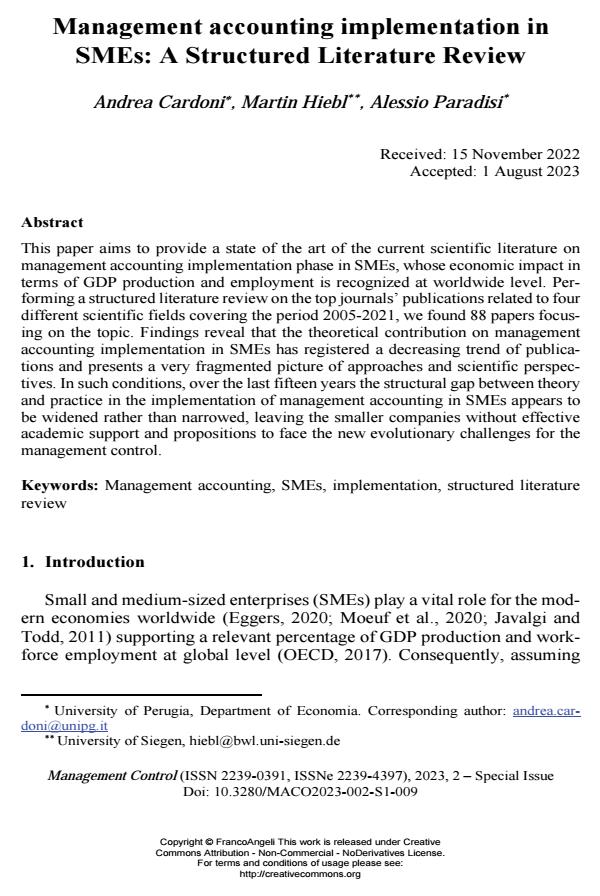Management accounting implementation in SMEs: A Structured Literature Review
Titolo Rivista MANAGEMENT CONTROL
Autori/Curatori Andrea Cardoni, Martin Hiebl, Alessio Paradisi
Anno di pubblicazione 2023 Fascicolo 2023/2 Suppl.
Lingua Inglese Numero pagine 26 P. 189-214 Dimensione file 344 KB
DOI 10.3280/MACO2023-002-S1009
Il DOI è il codice a barre della proprietà intellettuale: per saperne di più
clicca qui

FrancoAngeli è membro della Publishers International Linking Association, Inc (PILA), associazione indipendente e non profit per facilitare (attraverso i servizi tecnologici implementati da CrossRef.org) l’accesso degli studiosi ai contenuti digitali nelle pubblicazioni professionali e scientifiche.
This paper aims to provide a state of the art of the current scientific literature on management accounting implementation phase in SMEs, whose economic impact in terms of GDP production and employment is recognized at worldwide level. Per-forming a structured literature review on the top journals’ publications related to four different scientific fields covering the period 2005-2021, we found 88 papers focusing on the topic. Findings reveal that the theoretical contribution on man-agement accounting implementation in SMEs has registered a decreasing trend of publications and presents a very fragmented picture of approaches and scientific perspectives. In such conditions, over the last fifteen years the structural gap be-tween theory and practice in the implementation of management accounting in SMEs appears to be widened rather than narrowed, leaving the smaller companies without effective academic support and propositions to face the new evolutionary challenges for the management control.
Parole chiave:Management accounting, SMEs, implementation, structured literature review
Andrea Cardoni, Martin Hiebl, Alessio Paradisi , Management accounting implementation in SMEs: A Structured Literature Review in "MANAGEMENT CONTROL" 2 Suppl./2023, pp 189-214, DOI: 10.3280/MACO2023-002-S1009